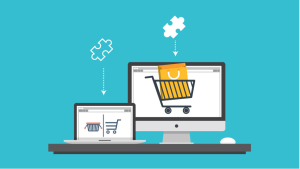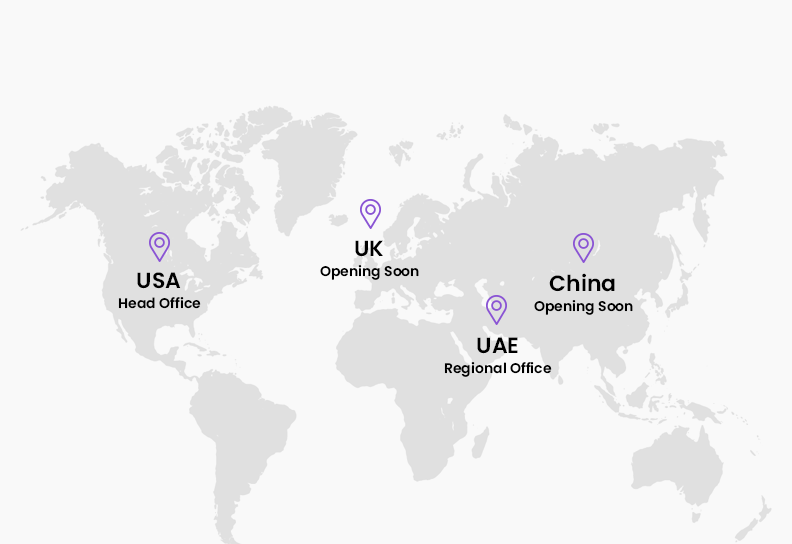As an e-commerce business owner, choosing the right platform for Ecommerce development can be daunting. There are many options available, each with its unique features and capabilities, and this is exactly what sparks the argument of BigCommerce vs Shopify. Two of the most popular platforms today are Shopify and BigCommerce for ecommerce website development. In this blog post, we’ll take a closer look at both platforms and compare them to help you decide which the best fit for your business is in 2023, so you can make the right decisions and choose which ecommerce development company to choose.
BigCommerce Vs Shopify at a Glance
Shopify is a popular e-commerce platform that has been around since 2004 & that’s why Shopify development companies have been in business for quite a long while. It is known for its ease of use and user-friendly interface. With Shopify, you can create an online store quickly and easily, and it requires no technical expertise to set up. Additionally, Shopify offers a wide range of apps and plugins that can be integrated into your store to add functionality and improve your customer’s experience.
When considering BigCommerce vs. Shopify, it’s important to note that BigCommerce, is a newer platform founded in 2009, but proficient BigCommerce development companies are in high demand. It is considered a powerful e-commerce solution that offers many features and functionalities. One of the biggest advantages of BigCommerce is that it is highly customizable, which means you can create a unique and personalized online store to match your brand. BigCommerce offers many integrations and apps to help you expand your business, from inventory management and shipping to payments and accounting. With its intuitive user interface and comprehensive features, BigCommerce is a great option for businesses of all sizes.
In addition to its powerful features, BigCommerce also offers excellent customer support. They also provide various helpful resources, such as tutorials, FAQs, and online forums. Furthermore, BigCommerce offers a free trial period, so you can test their platform and see if it’s the right fit for your business. With its flexibility, scalability, and customer support, BigCommerce is a great platform for businesses of all sizes.
Regarding pricing,
Shopify offers a basic plan starting at $29 per month, and BigCommerce starts at $29.95 per month for their standard plan. Both platforms offer a range of pricing options, including enterprise-level plans, and the costs will vary depending on the number of products and features you need.
Shopify offers a wide range of features, including unlimited products, unlimited storage, a drag-and-drop editor, and the ability to accept payments from over 100 different payment gateways. It also has an extensive app library, so you can customize and expand your store with integrations and add-ons.
BigCommerce has various features, including unlimited products, unlimited storage, and a drag-and-drop editor. It also offers advanced features such as abandoned cart recovery, product filtering, and coupon codes. Both platforms offer a variety of integrations and apps to help you customize and expand your store. Shopify has an extensive app library, and BigCommerce has a dedicated marketplace for third-party integrations.
BigCommerce Vs Shopify: SEO Functions
Search engine optimization can be useful to boost sales because more than 70% of search engine users only focus on organic results. The long-term benefits of increasing the quantity and quality of unpaid traffic are substantial.
You can contrast some useful SEO tools and applications in the contest between Shopify and BigCommerce. Both can aid in increasing the discoverability of your store and content optimization for search engines using keywords.
If SEO is a key component of your marketing strategy, Shopify and BigCommerce can effectively analyze the search engine optimization of your online store using apps. Aside from automatic site maps, each BigCommerce and Shopify plan also includes customizable metadata, URLs, and title tags for better SEO. Both platforms allow you to start a blog and produce content useful for your intended audience. Building trust with customers and improving your organic search engine ranking are two benefits of content marketing that can ultimately lead to higher sales.
Briefly put, both platforms provide similar options for improving your store’s SEO, including apps, re-usable metadata, tags, and a blog platform. There are nine available BigCommerce apps, compared to over 600 specific SEO apps in the Shopify store. The additional features that Shopify provides might be useful for boosting SEO and increasing traffic.
BigCommerce Vs Shopify Analytics
Accurate analytics can be essential for accelerating the expansion of your online store. Through analytics on the sales process, you can use purchase data to boost conversions. At the same time, accurate analytics can assist in identifying customers for successful marketing campaigns that boost sales.
Many important analytical tools are available on the BigCommerce and Shopify platforms. Examine sales KPIs like individual products, average order revenue, sales channels, currency, discounts, and returns. Keep tabs on your customers, abandoned carts, finances, and marketing performance.
Customized reporting is available from Shopify Plus and Advanced, while BigCommerce sells a paid eCommerce insight report. This additional information focuses on shopping baskets, items, and customers. It costs $49 for BigCommerce Standard and Plus and $99 for Pro, though.
Overall, both platforms are balanced thanks to their in-depth analytical reports, which can assist you in using solid information to expand your store successfully.
BigCommerce Vs Shopify, Which is Better?
In summary, Shopify and BigCommerce are excellent e-commerce platforms offering a wide range of features and functionalities. Hence why BigCommerce vs. Shopify is a highly useful debate. Shopify is known for its ease of use, while BigCommerce is known for its customization options. If you are looking for a platform that is easy to set up and manage, Shopify may be the right choice for you. But if you want a platform that offers more control over the design and functionality of your online store, BigCommerce may be the better option. Ultimately, the decision will depend on your specific needs and goals for your e-commerce business.
We know that most people starting with their first digital store may face some difficulties, so outsourcing it to an e-commerce development company may not be a bad idea since you’ll get professional services without any hassles. Whether it’s ecommerce re-platforming, website maintenance, Shopify development services, or BigCommerce, Ecommerce House has got you covered with a team of professional developers and round-the-clock support! So, what are you waiting for? Get in touch today!









